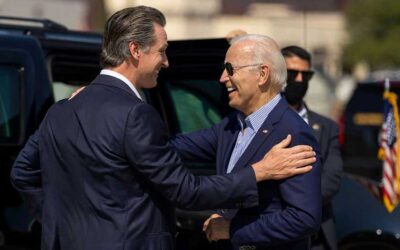Here’s yet another reason why Paul Krugman can’t be taken seriously.
One one hand, Krugman argues that the U.S. federal government should mandate an increased minimum wage of $9, so that workers will have more income with which to spend (which is where Krugman thinks economic growth comes from), and that increasing the minimum wage will not exacerbate unemployment (by pricing low-wage earners right out of a job).
On the other hand, Krugman argues that there is a problem in the U.S. of “downward nominal wage rigidity”, meaning that “people are very reluctant to demand or accept actual wage cuts”, which is necessary in order to reduce unemployment, and that price inflation resulting from central bank money printing is therefore a good thing, since it reduces workers’ real wages by decreasing their purchasing power.
(See also my FPJ article “Krugman vs. Hazlitt on Minimum Wage: Who Is Really ‘Wrong About Everything’?“
@jeremyrhammond Great article!
— Mises Institute (@mises) August 1, 2013



Your arguement is valid if you ignore reality.
“by pricing low-wage earners right out of a job”, really? So since we raise the minimum wage McDonalds will just stop employing people? The majority of minimum wage jobs are service sector jobs. There may be a small loss in total employment as more processes become cost effective to mechanize, but the reality is that employers will need to deal with decreased profits or increased prices.
If only their was some crazy way to figure out if you or I is correct. If only McDonalds operated in states or cities with different minimum wages. Oh wait there is! Amazingly McDonalds employees a similar number of employees at their stores in low wage states as they do in high wage states. Tada!
Yes, logically, the consequence of outlawing jobs is unemployment. This is self-evident.
Since you concede that “There may be a small loss in total employment”, there seems no point in my responding further to your argument, except to note that you are evidently referring to the effect of a small increase in minimum wage. So just ask yourself what the effect would be if the minimum wage was raised to $50/hour. Would the loss in total employment still be “small”?
Again, that minimum wage laws cause unemployment becomes self-evident when one thinks it through logically.
To argue otherwise is either to argue that (a) there are no people who would rather work for less than minimum wage than have no job at all or (b) there are no businesses willing to hire those people, or both (a) and (b). Obviously, neither of these conditions exist. This is obvious because if they did, there would be no need for minimum wage laws, since nobody who is employed would be working for less than that wage anyways.
You speak of ignoring reality. But it is you who evidently ignores the reality that wages are a price, and prices are determined by supply and demand. The consequences of fixing wage prices by fiat is the same as price-fixing the cost of bread.
$50 per hour? Of course, the straw man arguement. I guess the reverse of this is if you eliminate the minimum wage does that mean we will then have full employment?
“that minimum wage laws cause unemployment becomes self-evident when one thinks it through logically.” This is false. You are trying to limit the arguement to your two choices. Minimum wage laws do not cause unemployment because the majority of minimum wage jobs are in the service sector. For these companies to provide these services they must have employees to provide these services. To state McDonalds will cut employment to preserve profits assumes McDonalds is currently employing people that they do not need.
You are ignoring reality by not acknowledging that McDonalds is employing a similar number of their employees in stores in low minimum wage and high minimum wage areas. Prices are determined by supply and demand yet McDonalds would not be in business if they didn’t make a profit, but since all business are required to have the same minimum wage in an area, McDonalds would not be the only business that would either have to raise prices or decrease profits but overall employment at their stores would remain stable.
I didn’t argue a strawman. I asked you a question, which you didn’t answer, presumably for the obvious reason that if you did, you would have to concede the point.
Eliminating the minimum wage would not necessarily mean there would be full employment, no, because there are other factors to consider. However, it would help to mitigate the problem of high unemployment, yes.
It does not follow that since “the majority of minimum wage jobs are in the service sector” that therefore “Minimum wage laws do not cause unemployment”. This is a non sequitur. And it is false for the reasons I’ve already given you.
Likewise, it does not follow that if a business would cut employment if the minimum wage was increased, therefore they must currently be employing people that they do not “need”. This is also a non sequitur. This neglects that wages are a price determined by supply and demand (i.e., the “need” businesses have to hire workers to perform a given job).
Neither does it follow that since McDonald’s would not be the only business required to pay its workers more if the minimum wage was increased that therefore employment at this restaurant would remain stable. This is another non sequitur that which makes no sense at all.
Again, to argue that minimum wage laws do not cause unemployment is to say either that (a) there are no people who would rather work for less than minimum wage than have no job at all or (b) there are no businesses willing to hire those people, or both (a) and (b). This is obviously false.
But don’t take my word for it. Here’s Paul Krugman on the effects of minimum wage laws on unemployment:
“So what are the effects of increasing minimum wages? Any Econ 101 student can tell you the answer: The higher wage reduces the quantity of labor demanded, and hence leads to unemployment…. Clearly these advocates [of increasing the minimum wage] very much want to believe that the price of labor–unlike that of gasoline, or Manhattan apartments–can be set based on considerations of justice, not supply and demand, without unpleasant side effects…. In short, what the living wage is really about is not living standards, or even economics, but morality. Its advocates are basically opposed to the idea that wages are a market price–determined by supply and demand, the same as the price of apples or coal. And it is for that reason, rather than the practical details, that the broader political movement of which the demand for a living wage is the leading edge is ultimately doomed to failure: For the amorality of the market economy is part of its essence, and cannot be legislated away.”
– Paul Krugman the Nobel Prize-winning economist, “The Living Wage: What It Is and Why We Need It“, Washington Monthly, September 1, 1998
“This is what happens when there is a price floor on the wage rate paid for an hour of labor, the minimum wage: when the minimum wage is above the equilibrium wage rate, some people who are willing to work — that is, sell labor — cannot find buyers — that is, employers — willing to give them jobs.”
– Paul Krugman the Nobel Prize-winning economist, Macroeconomics, 2nd Edition (New York: Worth Publishers 2009), p. 128
“This is what happens when there is a price floor on the wage rate paid for an hour of labor, the minimum wage: when the minimum wage is above the equilibrium wage rate, some people who are willing to work — that is, sell labor — cannot find buyers — that is, employers — willing to give them jobs.”
– Paul Krugman the Nobel Prize-winning economist, Essentials of Economics, 2nd Edition (New York: Worth Publishers 2011), p. 114
See here:
https://www.jeremyrhammond.com/2014/01/12/many-faces-paul-krugman/